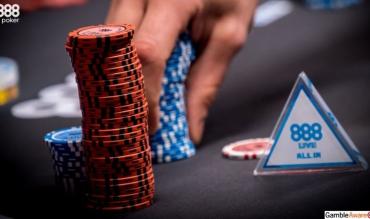Updated on June 20, 2025
Picture this: you're down to your last few chips in one of the biggest poker tournaments when suddenly you're dealt pocket aces. You go all-in, get called, and suddenly, you've got twice as many chips.
You've just doubled up.
The double-up is one of poker's most crucial concepts, especially in tournaments. It can transform a desperate situation into a comfortable one or turn an early elimination into a deep run.
Understanding double-up poker strategy and when to pursue these moments separates smart players from those who hope for the best.
What is Double-Up in Poker?
To “double-up” means to double the size of your chip stack. This scenario typically happens when you are all-in and win.
Let’s say you have 10,000 chips (20 BBs) in a poker tournament and wake up with KK on the big blind. The cutoff open raises to 1,000, and the button 3-bets to 2,500. Both have bigger stacks than you, so you decide to go for it and 4-bet shove.
- The cutoff folds, and the button calls.
- You beat their AQ and win a pot of around 20.000 chips.
- You have doubled up!
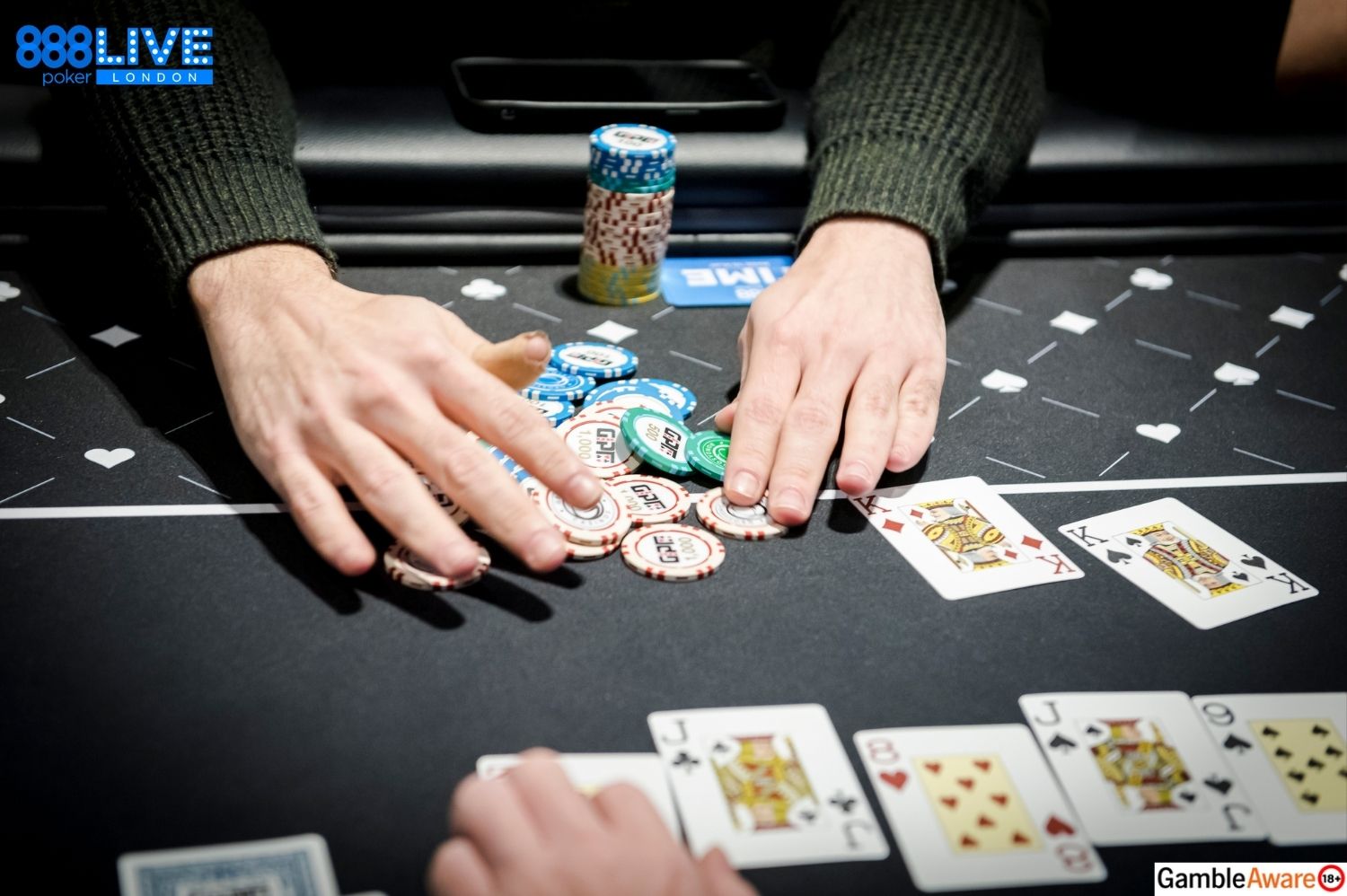
Doubling up on cash games is pretty much the same, but there is one key difference:
In cash games, you choose when to risk your entire stack, while tournament situations often force the decision on you due to the blinds increasing.
Example of the poker term 'double-up' used in a sentence -> We managed to double up on the very first hand of the tournament after getting dealt Aces under the gun.
Double-Up Poker Strategy
Poker Tournament Strategy
Your approach to doubling up in tournaments is mainly based on how many chips you have. You may end up in an all-in situation with a healthy stack, but generally, you can be selective and wait for premium situations. But as your chips dwindle, desperation creeps in.
Strategy is constantly evolving, and this may not be as black or white as it was in the past, but the magic number is often around 10 big blinds.
- GTO poker dictates that you're in the danger zone below this threshold.
- You start losing fold equity, and the blinds and antes will devour your stack quickly.
You need to find a spot to double up or risk blinding out.
Also, position is crucial when you're short-stacked. Pushing from early position requires a much stronger hand than pushing from the button, for example.
But don’t worry, we’ve got you covered!
Check out our push/fold charts to make your double-up attempts as mathematically accurate as possible!
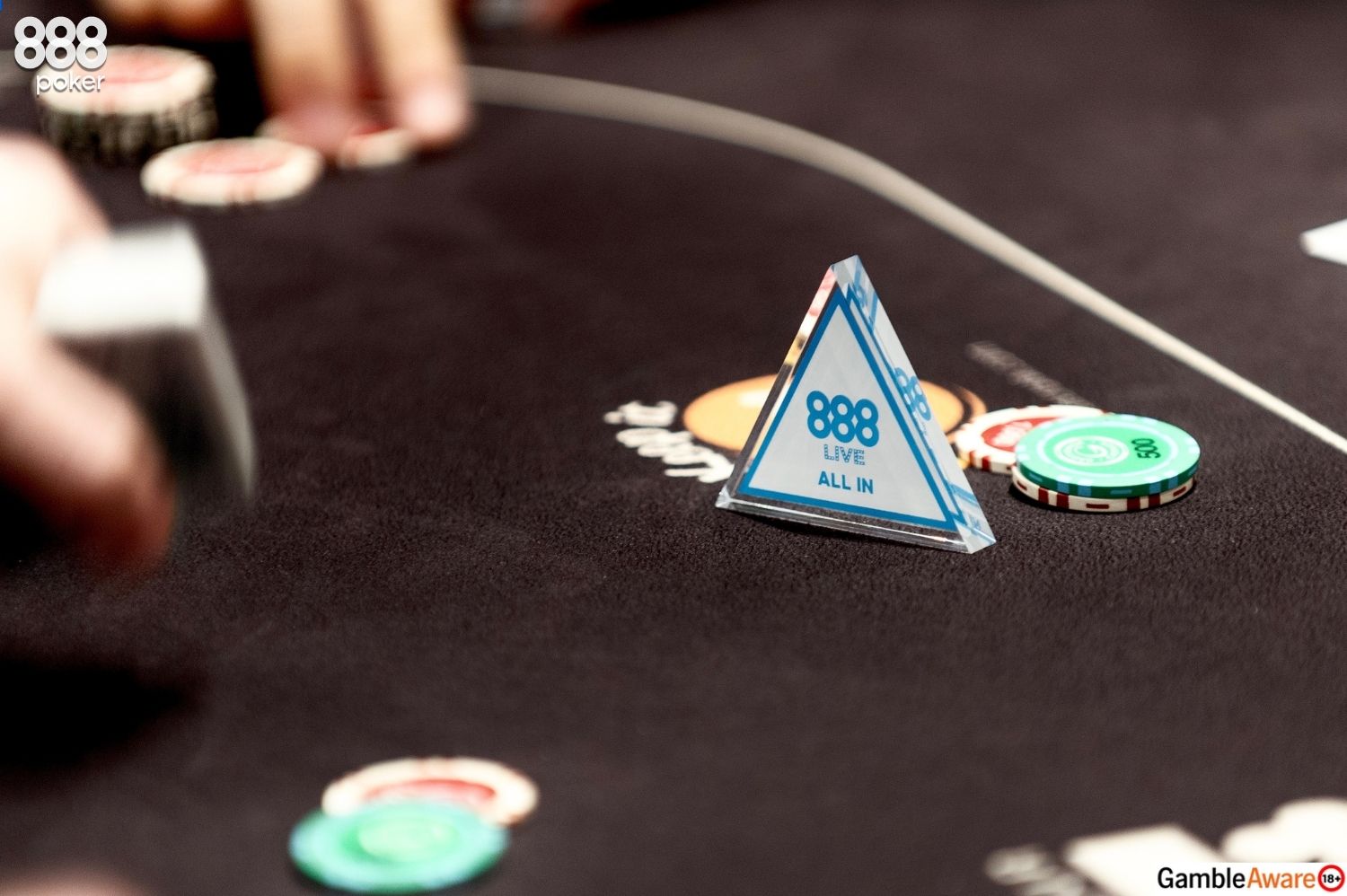
Poker Cash Game Strategy
The main difference in poker cash games is the flexibility over when to put your stack at risk. The decision to go for a double-up often comes down to reading your opponents and recognising profitable spots.
- Unlike tournaments, cash games don’t force urgent decisions.
- You can fold and wait for better opportunities.
Stack-to-pot ratios (SPR) become crucial. If you have $100 and there is $50 in the pot, you’re committed to playing for your entire stack in many situations.
Still, since cash games are often played deep (you can buy more chips whenever you want), such situations won't happen frequently.
So, be patient, and that will generally lead to more profitable double-up attempts when they do occur.
Common Double-Up Situations
Early Tournament Premium Hands
You're dealt pocket kings in the first level of a tournament. The player before you raises, and you decide to three-bet. They shove for 100 big blinds. This spot is a classic early tournament double-up where you have a premium poker hand but face a difficult decision with deep stacks.
Many beginners struggle here because losing means starting over while calling, which could set them up beautifully for the rest of the tournament.
The maths usually favours calling with such strong hands, even against a tight range.
Short-Stack Desperation Mode
It's the middle stages of a tournament, and you're down to eight big blinds. The blinds are coming around fast, and you haven't seen a playable poker hand in twenty minutes. Finally, you look down at ace-ten off-suit in middle position.
This scenario represents the most common double-up spot in tournaments. You're not thrilled with your hand, but waiting longer means the blinds will cripple you further.
Sometimes, survival means taking calculated risks with marginal holdings.
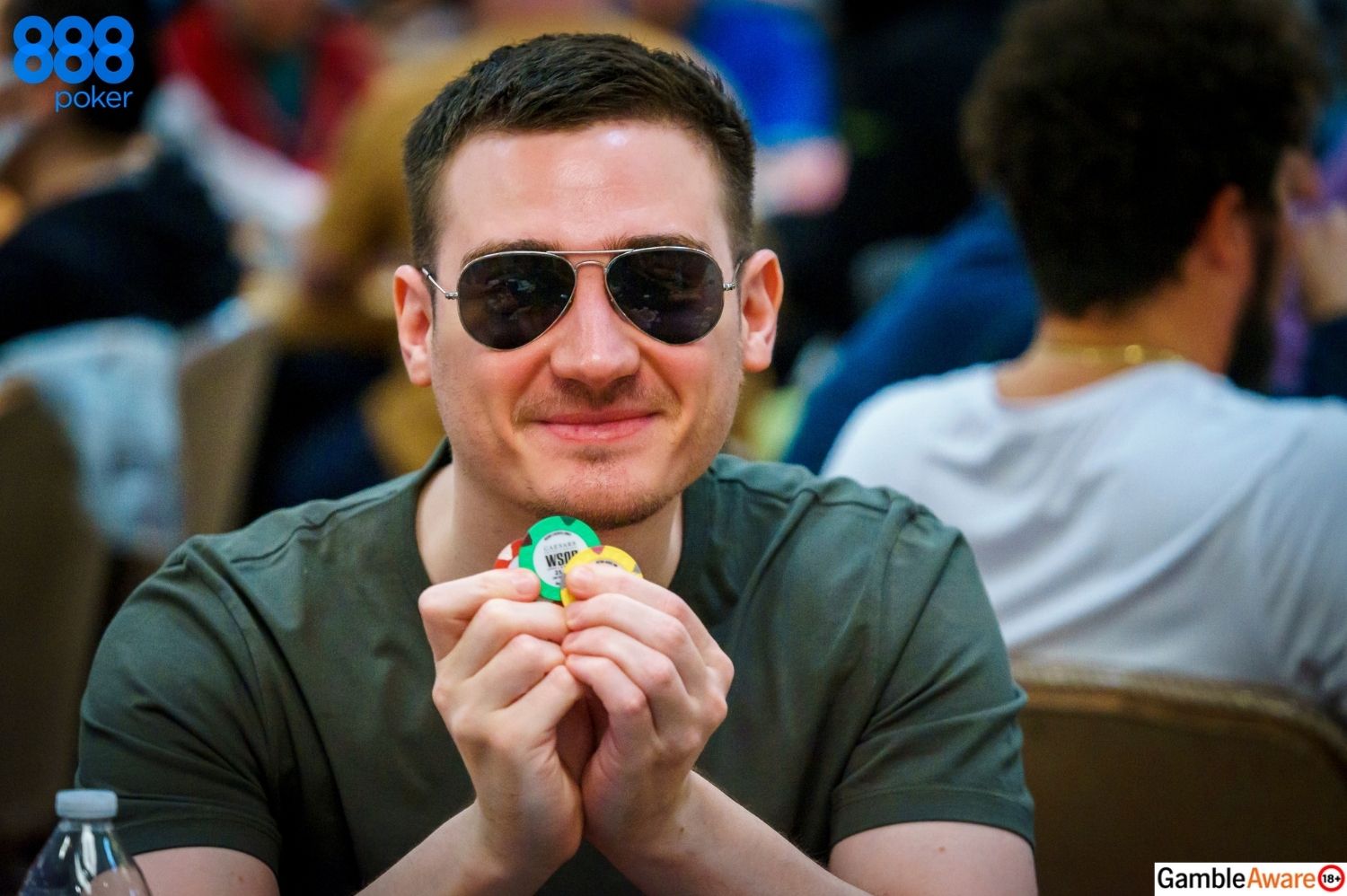
Cash Game Cooler Spots
You're playing a $1/$2 cash game and flop a set of eights on a relatively dry board. Your opponent keeps betting big, and by the river, there's $180 in the pot with $200 behind.
You're confident you have the best hand, but going all-in means risking your entire buy-in.
Cash game double-ups often develop gradually rather than happening all at once. The key is recognising when pot odds and hand strength align to justify the risk.
Mastering these poker double-up situations takes practice, but the fundamentals remain consistent across different types of poker games.
Double-Up Mistakes to Avoid
Doubling up is a good thing, and no one is disputing that. But like everything in poker, you need the proper discipline not to turn it into something bad.
Be mindful of these common mistakes:
- The gambler’s fallacy: Doubling up creates an instant rush of relief and excitement, but this emotional high can lead to poor decisions. DO NOT loosen your play unless you doubled up significantly in big blinds. If you doubled up a 7bb stack, you now have 14bb and are still in push/fold territory. Don’t start calling 3-bets with suited connectors or trying wild poker bluffs because you have more chips or feel you’re due for another double-up.
- Too tight when short: There's also the opposite mistake. After a long wait, you double up to 14bb and start folding strong hands because "they're not good enough, " and you might lose your newly acquired chips. Do not be afraid to commit if that's good strategy. Sometimes, mediocre hands become premium when your tournament life is at stake.
- Not adapting to your opponents: Not all opponents are equally likely to call your all-in. If you find yourself in a push/fold situation on the small blind vs a tight player on the big blind, loosen up your poker hand range and push a bit wider. It will pay off in the long run.
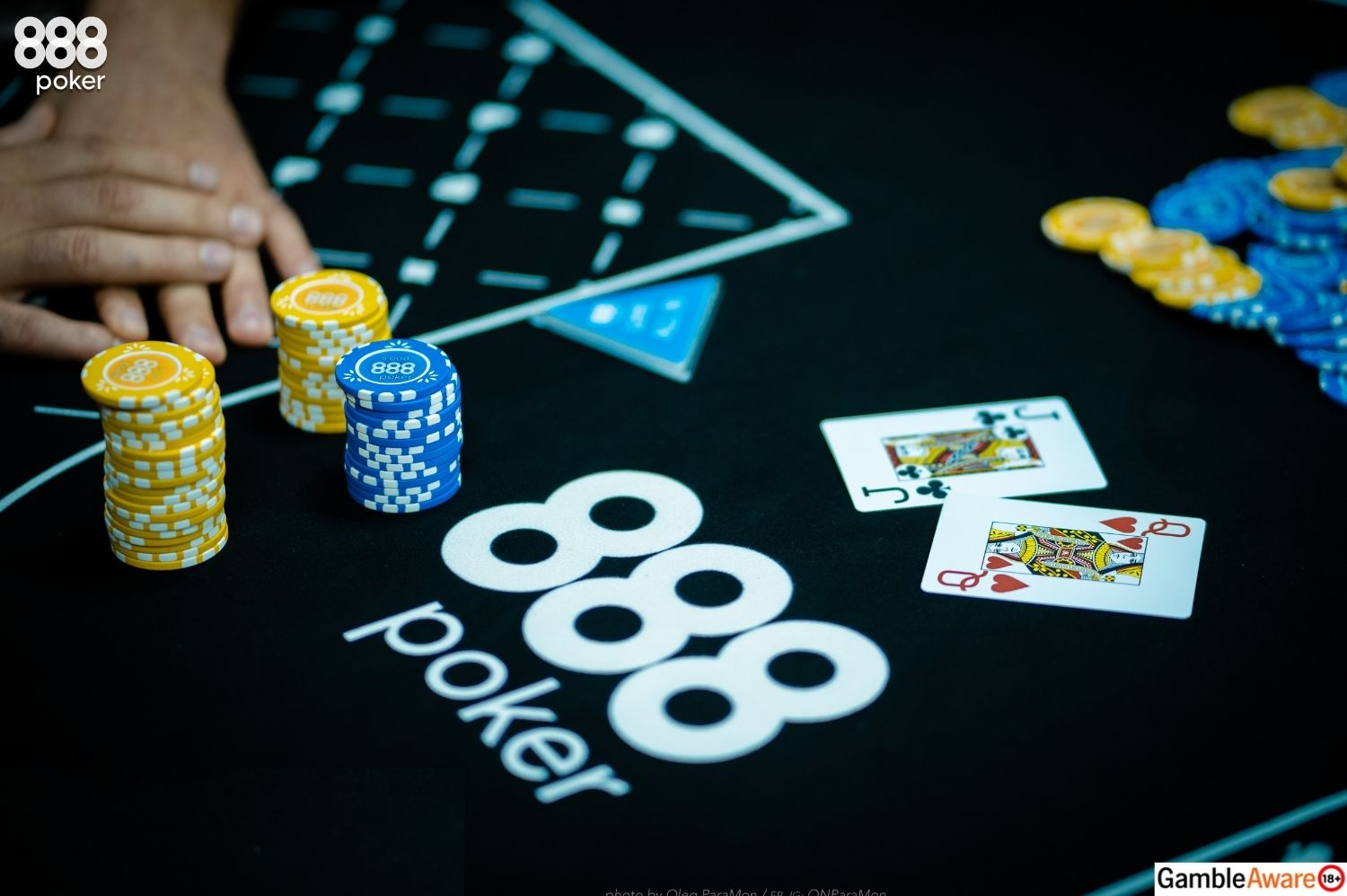
Poker Double-Up Final Thoughts
Here's the thing about doubling up – it will happen whether you plan for it or not. The difference between good players and everyone else is knowing when to go for it and when to pump the brakes.
Next time you're at the table, remember these concepts. Turn those all-or-nothing moments into smart, calculated decisions.
Your bankroll will thank you for it.
FAQ – Double-Up in Poker
What does "double-up" mean in poker?
It's straightforward! You double up when you double the size of your chip stack, usually by going all-in and winning the hand.
Is double-up exclusive to poker tournaments?
No, doubling up happens both in poker tournaments and cash games. The difference is that you can always reload when things go badly in cash games.
When do players most often try to double up?
Usually, when they're getting short-stacked or pick up a monster hand and want to build a big pot. Sometimes, you don't have much choice in the matter.
Can I double up more than once in poker?
Absolutely! You can double-up multiple times if poker probability keeps you winning when you go all-in.
Should I play differently after doubling up?
Don't go crazy just because you have more chips. Adjust your strategy based on your new stack size but resist the urge to splash around with your "bonus" chips.
On the other hand, avoid playing too tight by being afraid of losing your newly acquired chips.
Originally published on June 3, 2019
